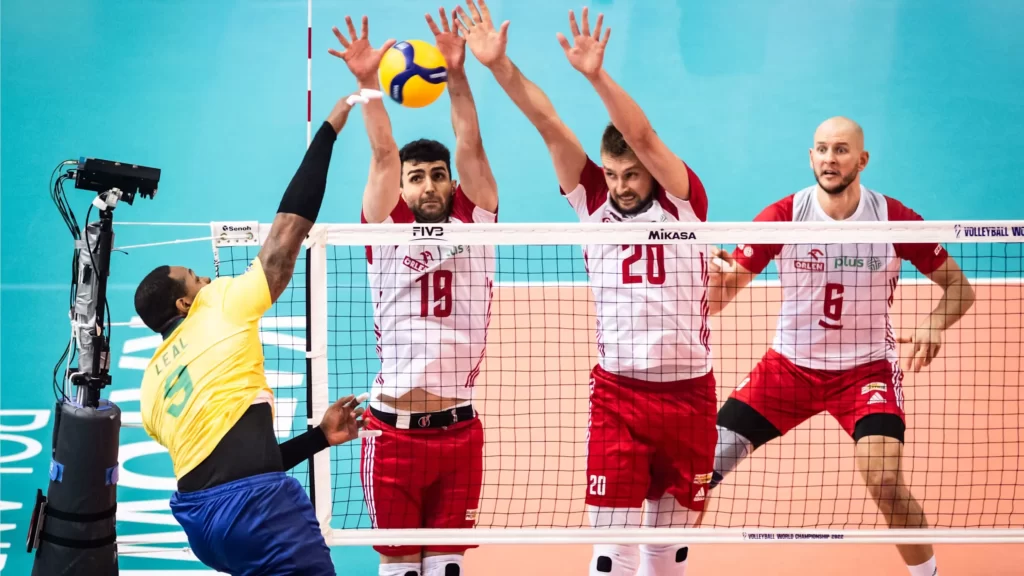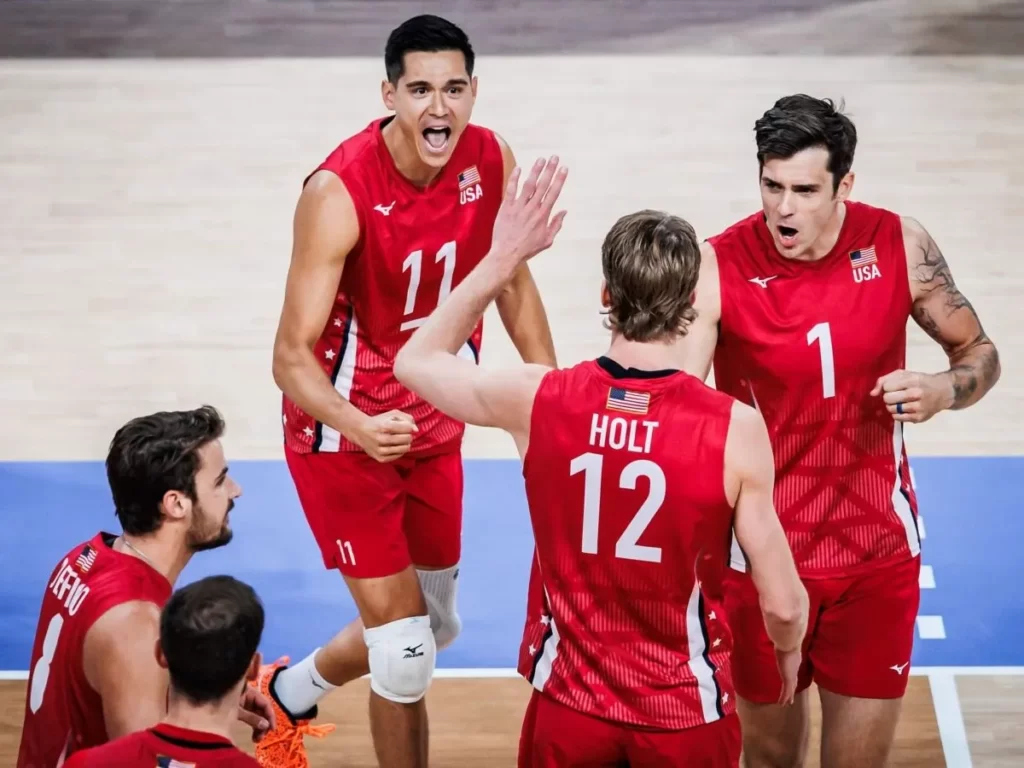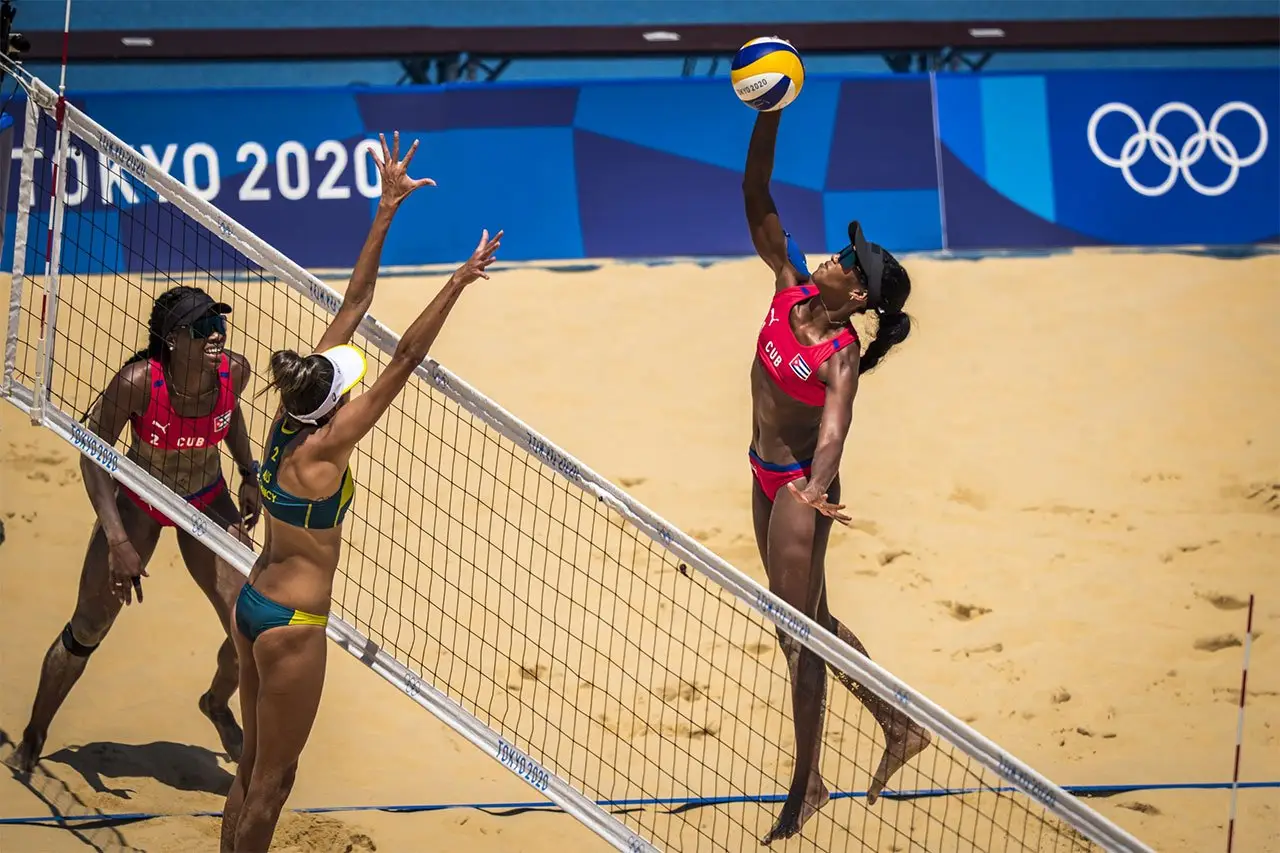Every sport has its legendary moments, those that remain in the memory of fans for many years. The best volleyball matches are stories of spirit, inspiration and unimaginable passion that make the hearts of spectators beat faster. We present a fascinating journey through the most impressive volleyball matches, where every moment is unique, and every point is a fight at the limit of human capabilities.
Legendary men’s volleyball matches: total overcoming
The final of the Olympic Games in Athens in 2004 became a real battle of titans. The match between the national teams of Brazil and Italy ended with a score of 3:1 in favor of Brazil, and was remembered for an incredible fight for every ball, where neither side was ready to retreat. The first set ended with a score of 25:15 in favor of Italy, but then the Brazilians rallied and won the remaining three sets – 26:24, 25:20, 25:22.

The intensity of the encounter became a symbol of overcoming, when both teams gave it their all, demonstrating the full range of emotions and skill. This encounter rightfully went down in history, where it fully reveals the beauty and drama of sport. The best volleyball matches of this kind always delight the audience and inspire new generations to achieve.
The most spectacular match in the history of volleyball: epic international battles:
Brazil vs. Russia – a magical comeback of the Nations League. July 2019. The Russian team was on the verge of defeat, losing 0:2 in sets (20:25, 22:25). But the Russian team was able to pull themselves together and win three sets in a row – 25:23, 25:19 and 15:12 in the tie-break. The amazing comeback against Brazil became one of the most memorable in the history of the Nations League.
The teams seemed to be from another world, playing at the edge of their abilities, creating something that all the spectators that day called magic. Such confrontations inspire fans, demonstrate incredible resilience and the ability to overcome any difficulties. The best volleyball matches are real battles that make you believe in the impossible.
The match attracted the attention of not only fans, but also experts who tried to analyze every detail to understand how the team managed to create a miracle.
Legendary volleyball matches at the Olympic Games

Cool games that are impossible to forget. They are loved by volleyball players and fans all over the world.
The final of the Olympic Games in Los Angeles (1984) – USA vs. Brazil
This match became a landmark for the entire Olympics. With a score of 3:0 (25:17, 25:17, 25:15) the US team managed to beat Brazil, demonstrating incredible skill. The fight went on until the last point, and the stands roared with delight. Thanks to this victory, the American team went down in history. This match entered the TOP of the most intense volleyball competitions, when every ball was worth its weight in gold, and any mistake was decisive. If you are tormented by the question of which volleyball matches are worth watching, without a doubt, this final is one of the main candidates.
The Soviet Union vs. Italy – Olympic Games in Moscow (1980)
The Moscow Olympics were remembered for many moments, but this match was one of the most dramatic. The Italians showed tenacity and confidence, despite the support of the stands for the USSR team. With a score of 3:1 (25:22, 18:25, 25:18, 25:19), the Soviet team managed to win and take gold. Without a doubt, this is one of the best matches, which inspires with a tough fight and tactical precision: the clash of styles made this meeting unique.
Japan vs. Poland – Olympic Games in Mexico City (1968)
The Japanese and Polish teams put on a spectacular volleyball show. Both teams demonstrated unique styles, and each serve was critical. Poland unexpectedly won with a score of 3:2 (15:13 in the decisive set), making this match legendary, which volleyball fans still remember. Often, the unpredictability of the result makes the game truly memorable.
Barcelona Olympic Final (1992) — Holland vs. Brazil
A unique confrontation took place at the Barcelona Olympics — the Dutch and Brazilian teams met in the final. The score was 3:0 (15:12, 15:10, 15:5) in favor of Holland. It was a match in which European tactics and team play surpassed the South American attacking style. The Dutch managed to turn the game around and take gold. The match also entered the ratings of the best volleyball matches due to its unpredictability and the athletes’ will to win.
The best women’s volleyball matches
The 2015 World Cup final between the United States and China became a real confrontation of styles — the strength and aggression of the Americans against the technique and discipline of the Chinese. The United States, led by Karch Kiraly, relied on physical training and powerful attacks, while China, led by Lang Ping, relied on precise combinations and defense.
After the US dominated the first set, China found a rhythm and evened out the game, winning the second set thanks to the phenomenal play of Zhu Ting. In the third and fourth sets, the teams traded blows, creating a real “swing” on the court. In the fifth and decisive set, the Chinese team, thanks to precise play and team spirit, were able to win and win the World Cup.
This match will forever remain in history as the best example of perseverance and confrontation of two unique philosophies of volleyball.
The best moments of the match that changed the history of volleyball
The best volleyball moments that changed the history of volleyball are those that set new standards for all teams and change the course of the matches. One such example is the confrontation between Japan and Poland in 1964. This match demonstrated a new strategy that had never been seen before on the world stage and inspired future generations of volleyball players.
The Japanese team, using a fast attack and a new defensive scheme, surprised the whole world. Poland, in turn, demonstrated excellent resistance and adaptation to new approaches of the opponent. Many elements, first tried in this match, later became the standard and changed the approach to the game for teams around the world.

More than sport
 The best matches have become true milestones in the history of volleyball. They inspire new generations of players and show that the impossible is just another challenge. Volleyball is always about emotions, tactics and true team spirit.
The best matches have become true milestones in the history of volleyball. They inspire new generations of players and show that the impossible is just another challenge. Volleyball is always about emotions, tactics and true team spirit.
 en
en  ru
ru  de
de  ar
ar  es
es  hi
hi  fr
fr  nl
nl  it
it  pt
pt  el
el 



